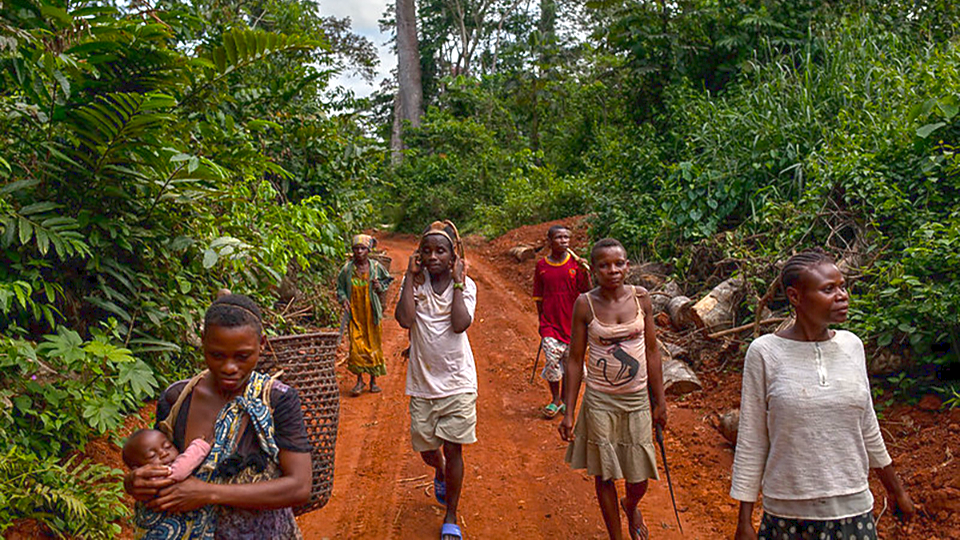New policy briefs underscore the interlinkages between human rights and biodiversity and share practical guidance on how to apply a human rights-based approach in the post-2020 global biodiversity framework, which is currently under negotiation by 196 governments
First published on 08/30/2021, and last updated on 10/03/2021
By Ameyali Ramos (International Policy Coordinator) and Holly Jonas (Global Coordinator)
As detailed in the 2020 report of the UN Special Rapporteur on human rights and the environment, all human rights ultimately depend on a healthy biosphere, and everyone has the right to live in a safe, clean, healthy, and sustainable environment. Now, as state governments convene virtually from 23 August to 3 September to discuss the post-2020 global biodiversity framework, two new policy briefs add to the growing calls to place human rights at the heart of this new international instrument.
Building on his 2020 report, UN Special Rapporteur David Boyd and Stephanie Keene co-authored a policy brief that details the devastating impacts of fortress conservation on Indigenous Peoples, Afro-descendants, local communities, peasants, rural women, and rural youth. Citing examples from Salonga National Park in the Democratic Republic of the Congo, Similipal Tiger Reserve in India, and Manu National Park in Peru, they show how this exclusionary approach to conservation has had not only a tremendous human cost but also limited gains for nature. The failure of the current draft of the post-2020 global biodiversity framework to prioritize human rights means that it risks contributing to further human rights violations in the name of conservation while jeopardizing the effectiveness of conservation efforts.
Moving on from critiques, Boyd and Keen advocate for a more inclusive, just, and sustainable approach to safeguarding and restoring biodiversity, stating that in addition to being morally and legally required, human rights-based conservation is the most effective, efficient, and equitable way to safeguard the planet. They set out a number of recommended improvements in the draft post-2020 global biodiversity framework to ensure that:
- Rights-based approaches are obligatory in all actions to conserve, restore and share the benefits of biodiversity, including conservation financing;
- Indigenous Peoples, Afro-descendants, local communities, peasants, rural women, and rural youth are acknowledged as key rights holders and partners in protecting and restoring nature, whose human, land, and tenure rights, knowledge, and conservation contributions must be recognized, respected, and supported; and
- Everyone’s right to live in a safe, clean, healthy, and sustainable environment is acknowledged and is accompanied by measurable targets towards the recognition and implementation of this right.
Boyd and Keene also detail a number of recommendations applicable to all conservation measures, including (among other things) prioritizing the legal recognition of rights of Indigenous Peoples, Afro-descendants, local communities, peasants, and rural women and youth within these groups; ensuring they are at the forefront of efforts to identify, designate and manage new and existing areas important for cultural and biological diversity (including ICCAs—territories of life, sacred sites and other effective area-based conservation measures); providing swift, just, fair and equitable investigation and redress for past conservation-driven rights violations and requiring large conservation organizations to respect and uphold human rights; protecting and respecting the rights of environmental human rights defenders; and redirecting financing for conservation to Indigenous Peoples, Afro-descendants, local communities, and peasants.
READ THE POLICY BRIEF: Human rights-based approaches to conserving biodiversity: equitable, effective and imperative (full version) (executive summary)
These messages are echoed by the Human Rights in Biodiversity Working Group in a new collaborative analysis of the first draft of the post-2020 global biodiversity framework. Established in Chiang Mai in February 2020, this working group includes the ICCA Consortium and Members Forest Peoples Programme and Natural Justice, as well as the CBD Alliance, Global Youth Biodiversity Network, CBD Women’s Caucus, SwedBio at Stockholm Resilience Centre, Tebtebba Foundation, Friends of the Earth International and WWF International.
READ THE ANALYSIS: Applying a human rights-based approach: Guidance on the application of a human rights-based approach in the post-2020 Global Biodiversity Framework (en español)
The analysis finds that the human rights-related advancements from Draft Zero to Draft One are not sufficient and without further improvement, the framework risks falling short of its ambition to achieve transformative change. Key messages include the following:
- Actions towards addressing the biodiversity crisis are promoted by recognition of the rights of Indigenous peoples and local communities nurturing biological and cultural diversity in their daily lives.
- The shaping of the post-2020 global biodiversity framework is an opportunity to enable transformational change through human rights-based approaches.
- Failure to adequately incorporate the protection of human and environmental rights defenders would mean risks not only for expanding violations of human rights but also increased destruction of biodiversity.
With this publication, the Human Rights in Biodiversity Working Group builds on an April 2021 discussion paper on options for integrating a human rights-based approach into the post-2020 framework.
The ICCA Consortium and its Members and Honorary members are actively participating in the process to develop the post-2020 global biodiversity framework, including through the Human Rights in Biodiversity Working Group and all four major caucuses in the CBD. Key priorities include explicitly recognizing Indigenous peoples and local communities for their outsized roles in protecting and conserving nature; placing human rights at the heart of the post-2020 framework; increasing ambition in the targets intended to halt drivers of biodiversity loss; increasing political and financial support for Indigenous-led philanthropy and appropriate funding mechanisms that go directly to Indigenous peoples and local communities and their organizations, and requiring human rights safeguards and accountability mechanisms in funding for conservation initiatives implemented by governmental and non-governmental entities. For more information and short-term and longer-term recommendations, read the executive summary of the ICCA Consortium’s 2021 report on territories of life.
